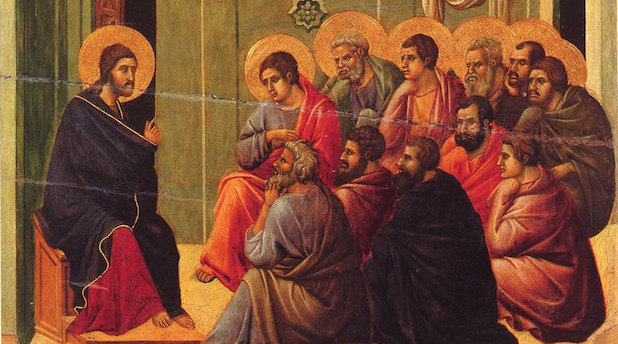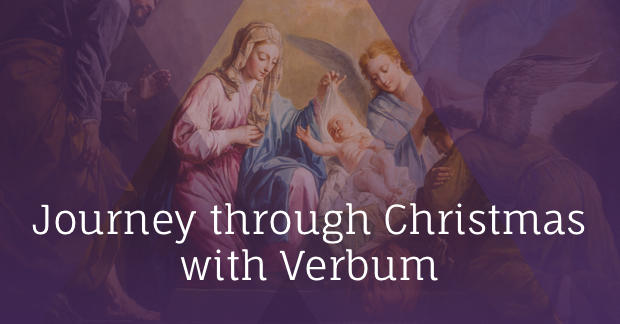
Enjoy this reflection on John 17:20–26, the Gospel reading from yesterday’s Mass, taken from The Navarre Bible: Saint John’s Gospel.
***
Union of Christians with Christ begets unity among themselves. This unity of the Church ultimately redounds to the benefit of all mankind, because since the Church is one and unique, she is seen as a sign raised up for the nations to see, inviting all to believe in Christ as sent by God come to save all men. The Church carries on this mission of salvation through its union with Christ, calling all mankind to join the Church and by so doing to share in union with Christ and the Father.
The Second Vatican Council, speaking of the principles of ecumenism, links the Church’s unity with her universality: “Almost everyone, though in different ways, longs for the one visible Church of God, a Church truly universal and sent forth to the whole world that the world may be converted to the Gospel and so be saved, to the glory of God” (Unitatis redintegratio, 1). This universality is another characteristic of the Church, technically described as “catholicity.”
“For many centuries now the Church has been spread throughout the world, and it numbers persons of all races and walks of life. But the universality of the Church does not depend on its geographical distribution, even though this is a visible sign and a motive of credibility. The Church was catholic already at Pentecost: it was born catholic from the wounded heart of Jesus, as a fire which the Holy Spirit enkindled.
“In the second century, the Christians called the Church catholic in order to distinguish it from sects which, using the name of Christ, were betraying its doctrine in one way or another. ‘We call it catholic,’ writes St. Cyril, ‘not only because it is spread throughout the world, from one extreme to the other, but because in a universal way and without defect it teaches all the dogmas which men ought to know, of both the visible and the invisible, the celestial and the earthly. Likewise, because it draws to true worship all types of men, governors, and citizens, the learned and the ignorant. And finally, because it cures and heals all kinds of sins, whether of the soul or of the body, possessing in addition—by whatever name it may be called—all the forms of virtue, in deeds and in words and in every kind of spiritual life’ (Cathechesis, 18, 23)” (St Josemaría Escrivá, In Love with the Church, 9).
Every Christian should have the same desire for unity as Jesus Christ expresses in his prayer to the Father. “A privileged instrument for participation in pursuit of the unity of all Christians is prayer. Jesus Christ himself left us his final wish for unity through prayer to the Father: ‘that they may all be one; even as thou, Father, art in me, and I in thee, that they also may be in us, so that the world may believe that thou hast sent me’ (Jn 17:21)” (John Paul II, General Audience, 17 January 1979).
***
This post is adapted from The Navarre Bible: Saint John’s Gospel, part of this month’s individual commentary sale.





